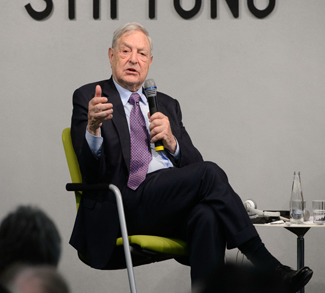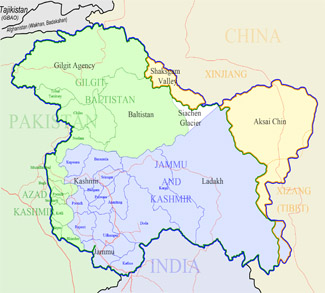As explored in the first part of the series, post-9/11 attempts by the US federal government to regulate financial markets and tax havens contributed to triggering the 2008 Great Recession. Further, the reaction to the 2008 financial crisis contributed to even more assertive interventions of the US state, which have been altering the fundamental structure of the financial world ever since. Whether intended or not, this points to some deep link between geopolitics and global finance. This is ironic, since to some degree modern-day tax havens have a history of being birthed in a geopolitical context dominated by inter-state competition of the Great Powers.
The use of the tax havens has been argued to go back for centuries, if not millennia. Ancient Greek traders exploited certain islands as depositories for goods to avoid taxation by various city–states, particularly Athens. While Athens is often touted as the origin of Western democracy, when it comes to economics, Athenian elites – and other Greek city states as well – implemented controlled economic systems where, according to historian Johannes Hasebroek, “tyranny did not stop short of its own citizen body. The State interfered not only in commerce, but in the whole economic life of the city. Property, money, credit every kind of pecuniary transaction, were at its mercy.”
Closer to our modern era, European notables have used tax havens to store up wealth in off-shore lands in case of domestically being sucked into social revolution that was sweeping through 19th century Europe. However, the rapid growth of financial tax havens seems more to be a post- World War I phenomenon, where reconstruction in Europe and progressive economic policies implemented in the West resulted in increased taxation to provide greater domestic services. Panama itself began registering non-Panamanian ships immediately after World War I, and US Standard Oil soon used its services to evade taxation by Washington.
As noted previously, close to 25% of all tax havens are wired into British finances. The development of tax havens is rooted in the unique history of Great Britain. According to historian Nicholas Shaxson, as Great Britain developed over the centuries, its political powers and financial powers centered in London grew into a sort of symbiotic relationship. Whereas the political leadership would ask for loans from the financiers, financiers would ask for themselves and their institutions to be exempt from certain laws that applied to rest of Britain. Although this relationship continuously has had tensions with the parliament, this quid pro quo arrangement over privileges essentially jump-started the growth of a financial para-state, leading to establishment of tax havens later on in history.
As Great Britain became an empire and expanded toward the east, first commercially and subsequently as part of counter-Russian competition of the Great Game, the financial sectors grew along with it, riding on its back and establishing world-wide financial networks. Great Britain involved itself in three major wars to block off Russian expansion to the south to establish warm-water ports. The Crimean War (1853-1856) blocked off Russian advances into the Mediterranean; the Second Anglo-Afghan War (1878-1880) blocked off Russian advances into South Asia, and turned the Emirate of Afghanistan into a British protectorate; and two maritime empires, Great Britain and Japan, formed the Anglo-Japanese Alliance (1902) and the Russo-Japanese War (1904-1905) ensued with the backing of British arms, intelligence, and finance. This aided to block off Russian expansionism into Pacific Rim of East Asia. Japan turned the unstable Empire of Korea into a protectorate in 1905 and ended up annexing the peninsula later on in 1910. As the Russo-Japanese War was being fought, British forces led by Sir Francis Younghusband entered Tibet in effort to establish it as a buffer state against Russia, which came to fruition with the 1914 Simla Accord thus effectively creating buffers on both sides of northern British Raj against Russian expansionism.
Although Sir Halford MacKinder developed his geopolitical theory in this historical context – pondering how to defend the network of British colonial empire that spanned from Africa to East Asia from Russian penetration – British financial power expanded simultaneously thus embedding them both in a geopolitical context . Indeed, the predecessor of the scandal-mired HSBC holding company was fully wired into the web of opium trade in South and East Asia. Great Britain won the First Opium War against the Qing dynasty in 1842, resulting in the Treaty of Nanking which ceded rule of Hong Kong Island to Great Britain. Hong Kong Shanghai Banking Corporation was founded in 1865 by a group led by Thomas Sutherland, employee of the Peninsular and Oriental Steam Navigation Company that handled the bulk of India-Qing dynasty maritime trade. 70% of the products in that trade was opium.
Thus the financial center of the world’s premier empire of recent past centuries became also a major factor in the development of modern tax havens. By the end of the Second World War, the empire was exhausted and bankrupt – the last installment of loan repayment was paid only in 2006. Its imperial status was replaced by the United States and a process of decolonization commenced. The Marshall Plan opened up capital flows between both sides of the Atlantic.
During the early days of the Cold War in 1955, Midland Bank – now known as being a part of HSBC – started to engage in “suspicious trades” but the Bank of England did not intervene in its affairs or the market itself. In fact, soon the London banks started dual book-keeping practices. One for on-shore, domestic use and other for off-shore use, effectively creating what came to be known as the “Euromarket.” 1956 was the year of the Suez Crisis, which was in effect the final “nail in the coffin” for the British Empire. The proxy war between the Soviet Union (backing Gamal Abdel Nasser’s Egypt and its nationalization of the famed canal) and the Anglo-France party (backing Israel) ended with the United States entering on the side of Egypt. This inadvertently contributed to strengthening Nasser and the rise of Arab nationalism. British Prime Minister Anthony Eden resigned in the aftermath; reluctance on the part of the British government to involve itself in foreign problems increased, and the decolonization process sped up.
In the following year, the Soviet Union moved the dollars it held in American banks to Moscow Narodny Bank located in London out of fear that Washington would freeze these accounts. Although Great Britain was reorienting its post-World War II financial policies to the dismantling of its political and maritime empire (with hopeful resurrection to the world stage as a financial reincarnation of it), Moscow was still reluctant to invest in the pound. Since Moscow Nardony Bank was chartered by Great Britain although owned by Soviet Union, Moscow reasoned that it would be able to circumvent any financial actions by Washington.
The British-rooted tax havens and financial networks continued to grow. Shaxson describes this trend as “the Bank of England,” although ultimately answerable to the British government, “in effect encouraged tax havenry in British outposts of the Caribbean and elsewhere. By the 1980s the City was at the center of a great, secret financial web cast across the globe.” Despite this expansion, transformation of British economy from a manufacturing-base to services-base (especially in area of finance) has been coming under post-recession measures and regulatory efforts such as FATCA. A similar thing can be said of Brexit – with its referendum scheduled for June 2016 – where parting with EU may significantly weaken the British financial industry. Recent London’s flirtation with Beijing over economic partnership – sponsorship of the Asian Infrastructural Investment Bank (AIIB) and agreement with Beijing regarding the construction of nuclear plants in Britain – may be a strategy of rehabilitation or at least management of Britain’s status as a financial hub of international finance after.
Geopolitical significance of financial networks and tax havens remains. Although the Patriot Act shifted the flow of terror finance and money laundering in general away from the tax havens in the US/Caribbean region, it shifted to those in EU and the Islamic world. The rise of both the so–called “Islamic State” – supported partially by Middle Eastern financiers – and the Gulf States as financial and transportation hubs is of notable regional geopolitical significance, especially in relation to Iran.
Which brings us to next question: What will become of the competition and tension between the state and the international finance in the coming years? The EU strengthened its supervision over finances via the Liikanen Reform, but the EU itself is slowly moving to the edge of collapse due to multiple crises: Mass migrations (expected to continue to rise in 2016), the rise of nationalism (not only due to the migration issue alone but also a reaction to ideologically driven bureaucratic elites at Brussels that has been brewing for years), and possible a “Brexit” that may alter balance of power on the European continent.
In the United States, Republican Presidential candidate Donald Trump– who recently remarked that NATO might have to be “let go” – has been proposing to build a security wall along the southern border, and have Mexico pay for its construction. Teichopolitics – or the politics of border control via security structures – have been in vogue since the end of the Cold War as noted by scholars Stéphanie Rosière and Reece Jones. So the whole discussion is really nothing new. One of the ideas that has been proposed – if the security wall plan is implemented should Trump be elected – is to tax the remittances sent back to Mexico. The remittances have been calculated to exceed the revenue pulled in by the Mexican petroleum industry in 2015. Thus, paradoxically, border–crossing international financial transactions will possibly be used to fund a project that will demarcate state borders in a physical, concrete manner.
Moreover, what are the appropriate spheres of responsibilities of the state and market? What are the implications of this for the financial privacy of law-abiding individuals in the waves of financial controls to promote electronic transactions? Indeed, Ken Rogoff writes quite frankly that “if governments do stop issuing anonymous currency, then they would probably have to ensure that the private sector did not proffer a Bitcoin–like substitute.” The aftermath of the Great Recession of 2008 – with which we began this analysis – is still felt. The financial world, and the United States at its epicenter, has yet to fully recover nearly a decade later. It was shaken once again by the collapse of the Chinese stock market in the summer of 2015 and Beijing’s heavy-handed response to it. 2016 began in much similar way with not only turbulence in Chinese stock market but in EU stock market as well. Beijing in March 2016 closed down online publishing by foreign media invested in Chinese economy, strengthening their digital regulation. And of course Brazil, the host for the 2016 Rio Olympics is burning under the dual onslaught of economic crisis: the longest recession since 1931 and political corruption on a massive scale. This could potentially have disastrous effect on global economy, with Brazilian central bank expecting for the domestic economy to contract 3.5% this year, after 3.8% contraction last year. How will states the world over respond to the next round of international financial crisis?
Whoever “John Doe” or whatever organizations behind the Panama Papers leak may be (a tremendous debate and speculations have been raging since the beginning of the revelation) the controversy is in a sense a reminder. A reminder that is not only of the corruption that is endemic in domestic politics and statecraft. It is also of the role that financial networks and tax havens have played and continue to play in the area of the chaotic and rapidly changing geopolitical environment, the place of the state in the realm of finance, and domestic balance of power between the state and civil society in the globalized world. Provision of security is important, but those who cherish free and open society should not neglect to take heed.
This article is part two in a two-part series. The first part can be found here.
The opinions, beliefs, and viewpoints expressed by the authors are theirs alone and don’t reflect any official position of Geopoliticalmonitor.com.




